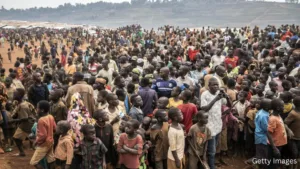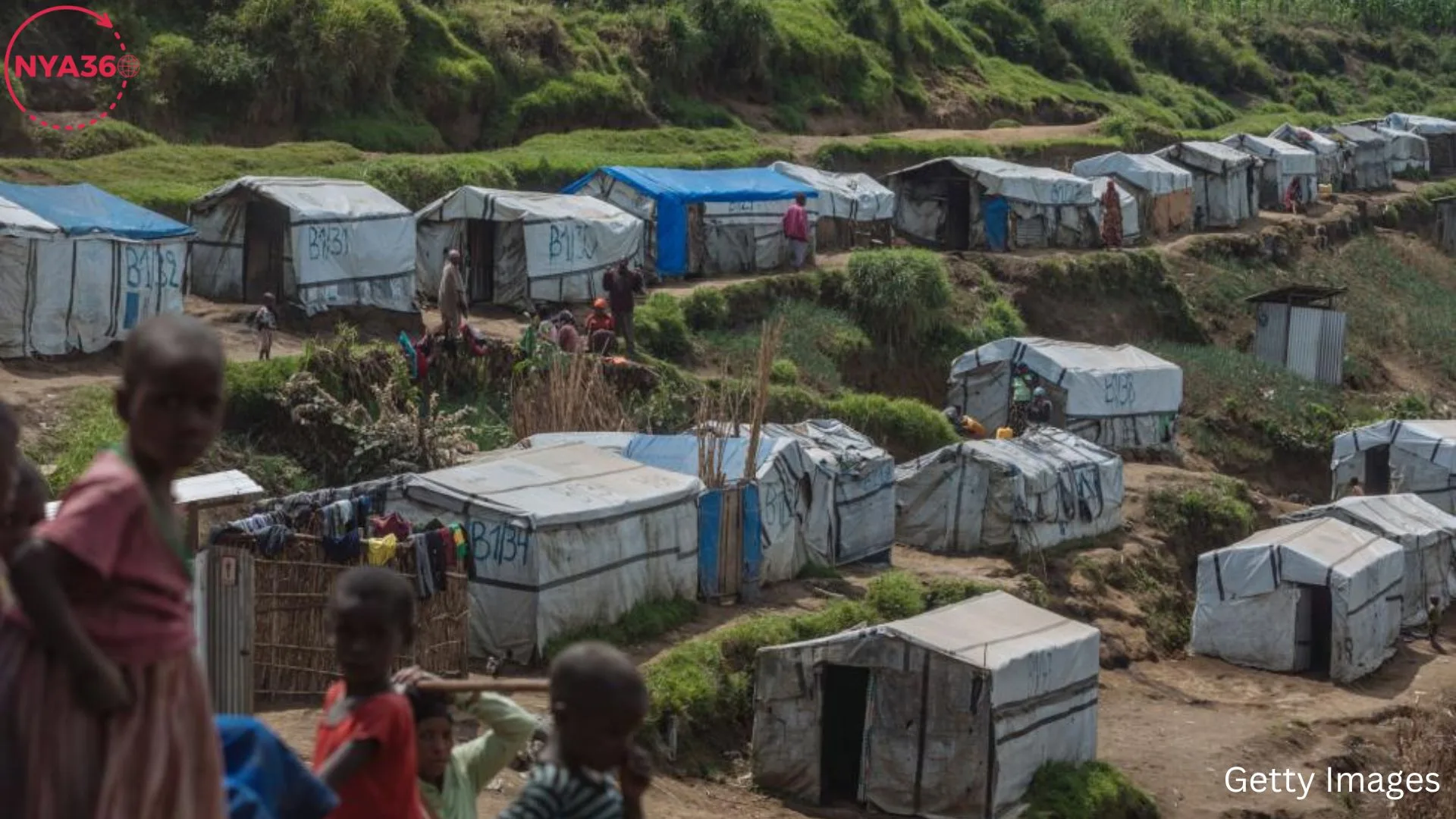The Democratic Republic of Congo (DRC) is currently facing an enduring humanitarian crisis as a result of growing violence and conflicts, which has resulted in a significant rise in the number of internally displaced people (IDPs). The available reports from the initial six months of 2023 reveal a disconcerting pattern: a significant increase in the number of individuals who have been internally displaced within the nation’s boundaries, further intensifying an already critical state of affairs.
The Democratic Republic of the Congo (DRC), a geographically expansive and abundantly endowed nation in Central Africa, has been afflicted by prolonged periods of turmoil, internal strife, and a lack of political stability spanning several decades. The persistent unrest has led to extensive displacement, necessitating the migration of millions of individuals who have been compelled to abandon their residences in search of security and refuge in alternative locations.
The situation has been aggravated by the recent increase in violence, leading to a notable rise in the internal displacement of citizens within the nation. The upsurge can be attributed to a confluence of factors, including armed group confrontations, ethnic frictions, and conflicts arising from land and resource disputes. Furthermore, the enduring presence of armed conflict in certain geographical areas has reinforced a recurring pattern of instability, resulting in ongoing forced displacement and significant human distress.
The magnitude and immediacy of the crisis are shown by the relocation of almost one million individuals over the initial six months of 2023. Families and communities are being displaced from their residences, frequently abandoning their belongings and sources of income, as they seek security and sanctuary from the intensifying aggression.
The ramifications of displacement extend beyond the immediate deprivation of residences and possessions. Displaced folks encounter a multitude of obstacles, encompassing restricted availability of fundamental provisions such as sustenance, uncontaminated water, medical services, and educational opportunities. Frequently, individuals frequently encounter circumstances when they are situated within displacement camps that are characterized by excessive population density and limited resources, or alternatively, they seek refuge by residing with host families. This situation places significant demand on the resources of communities that are already grappling with their own challenges.
The predicament faced by those who have been forcibly evacuated, with a special emphasis on women and children, is very disconcerting. In the context of displacement, women and girls face an elevated vulnerability to gender-based violence, encompassing forms such as sexual exploitation and abuse. Children frequently experience a lack of access to education, rendering them susceptible to being recruited by armed factions, so exacerbating the precariousness of their prospects.

Humanitarian groups and humanitarian agencies are diligently engaged in efforts to deliver aid and support to individuals impacted by displacement. Nevertheless, the magnitude and intricacy of the crisis provide notable obstacles in the efficient delivery of help, particularly in regions characterized by restricted accessibility caused by insecurity or logistical limitations.
The involvement of the international community is of paramount importance in addressing the humanitarian situation in the Democratic Republic of Congo (DRC). Enhanced diplomatic endeavors, augmented financial allocations, and reinforced assistance are imperative in order to furnish necessary humanitarian assistance, safeguard vulnerable populations, and devise sustainable resolutions for individuals impacted by forced relocation. The primary focus of humanitarian aid should be on safeguarding the well-being of civilians, with an emphasis on preserving their safety, dignity, and ability to avail themselves of critical services.
The implementation of strategies aimed at tackling the underlying factors contributing to the conflict, advancing peacebuilding endeavors, and facilitating long-term development are crucial in minimizing additional displacement and establishing a conducive environment for lasting resolutions. Addressing the underlying reasons fueling the crisis necessitates the adoption of a comprehensive approach encompassing conflict resolution, governance changes, and investment in socio-economic development.
The current state of affairs in the Democratic Republic of Congo necessitates immediate attention and collaborative endeavors from the international community to mitigate the plight of the displaced populace and strive towards a future characterized by enhanced stability and security inside the nation. The imperative for durable solutions and enduring assistance for individuals impacted by displacement remains of utmost importance within the context of this intricate humanitarian crisis.
Follow us on social media: Instagram, Threads & Twitter X @nya360_ YouTube & Facebook @nya360.





